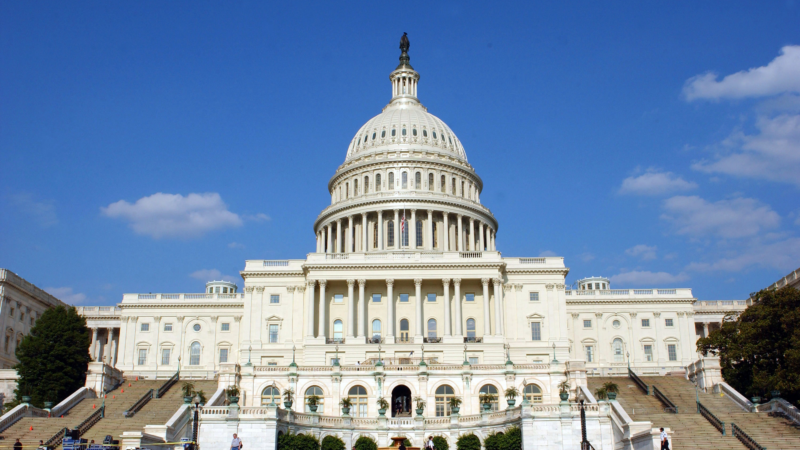How U.S. progressives broke the administrative state, according to Marc J. Dunkelman
California Gov. Gavin Newsom did something revealing after his state’s recent fires. He issued an executive order suspending permitting and review requirements to allow people to rebuild quickly. Newsom also directed state agencies to identify regulations that “can safely be suspended or streamlined.”
Which raises a question: If some building regulations “can safely be suspended,” does California need them at all?
Writer and progressive Marc J. Dunkelman argues that, in some cases, it does not.
Dunkelman’s forthcoming book, Why Nothing Works: Who Killed Progress—and How to Bring It Back, argues that progressives “cultural aversion to power,” has weakened the administrative state to the point of stifling the country’s ability to take on big issues such as regulating corporations and expanding public works.
He says that in attempting to keep checks on the establishment, governments across the country have added years to many projects by mandating extensive reviews and setting up complex permitting requirements for large infrastructure projects. He adds that the process enables almost anyone—nearby residents, political activists and local officials—to object, delay, or even derail a project and argues that his fellow progressives often block beneficial initiatives rather than working to improve them.
And yet, Dunkelman, a fellow at Brown University’s Watson Institute for International and Public Affairs, says hope remains, “there’s nothing wrong with progressivism that can’t be fixed by what’s right with progressivism.”
NPR’s Steve Inskeep spoke with him about why this issue matters and what to do about it.
This interview has been edited for length and clarity.
Steve Inskeep: When New York City built its subway system in the first part of the 1900s, it took about three years to build the first subway line through Manhattan. It’s impossible to do anything in three years in the United States today, certainly anything of that scale. What do you make of that comparison?
Marc J. Dunkelman: I think that’s exactly right. We had a long period in our history where we gave centralized power to certain authority figures to make big decisions that were designed to help everybody. And often they weren’t beneficial. Sometimes they were abusive. There are lots of stories where we awoke to that in the 1960s and seventies.
There was a central figure named Robert Moses who was sort of the czar of everything on the New York City landscape. He had power for 40 years, and he was enormously effective at building roads and tearing down neighborhoods and building up public works, much to certain people’s detriment and to other people’s benefit. And we awoke to that with a famous book in 1974 called The Power Broker, and saw how abusive he had been. And so we’ve spent the last 50 years trying to prevent that sort of situation from recurring, and inadvertently, we’ve stopped good things from happening as well.
Inskeep: But isn’t this good in a country with individual rights that if I own a house and I’m upset about the thing that’s being built down the street. I have all these tools to object and question it?
Dunkelman: There needs to be some sort of process. It just can’t be endless, right? And we’ve swung from one extreme where folks like Robert Moses could do almost whatever they wanted without anybody being able to say anything to another, where almost any objection stops everything cold.
Inskeep: You’ve mentioned public works. But has this also affected private real estate, the housing that most of us live in?
Dunkleman: That’s one crisis where we have too few homes in this country. That’s why prices are up on the main. It’s almost impossible for someone who wants to build a big new housing development to get approval expeditiously.
Inskeep: Did progressives cause the government to be discredited in many people’s eyes by pushing for these initiatives?
Dunkleman: You know, these were well intentioned initiatives at the beginning. Today, it’s apparent to absolutely everyone, I think that the government just doesn’t work well. So if you want the government to work. Well, which progressives should want and do want? They need to look at the actual machinery of how it works.
Inskeep: Are there other cases where progressive initiatives are blocked by progressive governance?
Dunkleman: the classic example is a transmission line that would have brought clean hydro power from Canada into the New England grid, and it’s still not online. Progressive efforts to protect woodlands, to protect small communities, have put up so many barriers that we are unable to harness the clean energy that’s available to
us.
Inskeep: Do you see any signs that more conservative people might be embracing the regulations? Because it does give them a chance to keep their neighborhood the way it is?
Dunkleman: You see that all the time, people who claim to be against red tape, and then when someone proposes that there be some middle income housing in their neighborhood, suddenly they’re vociferously in favor of certain housing regulations or zoning regulations, or are certainly very worried about what the impacts will be on local wildlife. Absolutely, we all, every American, have some interest in preserving what they themselves have, even as they want the country to thrive. And you just can’t have a system where everyone has a veto, the bridge has to go somewhere, and someone’s going to be inconvenience by the bridge, and everyone’s going to benefit, but someone’s going to be inconvenienced more than anyone else, and you can’t let that stop you from making progress expeditiously. We need to be able to build, improve and drive progress in this country.
When are March Madness brackets released? Here’s what to know about Selection Sunday
The 68-team fields for the men's and women's NCAA basketball tournaments will be unveiled Sunday night, and the games begin next week.
NWSL preview: 5 questions that could shape women’s soccer this season
Whether you're new to the National Women's Soccer League, or you've been a fan for its past 12 seasons, here's a preview of what you should watch out for when play kicks off this weekend.
Who’s in, who’s out and who is Billboard’s Woman of the Year? Find out in the quiz
If you've been paying attention to international politics, you'll get at least three — yes, THREE! — questions right this week!
Why CEOs are calm about tariffs in public — but ‘very discouraged’ in private
Business leaders are trying to engage in a delicate diplomacy with the White House — even as their companies brace for the impact of market volatility and tariffs.
Dr. Mehmet Oz, Trump’s pick to lead Medicare and Medicaid, gets his Senate hearing
Dr. Mehmet Oz is set to appear before the Senate Finance committee Friday for his confirmation hearing to be the administrator for the Centers for Medicare and Medicaid Services.
COVID made shortages of doctors and nurses even worse. Rural hospitals still struggle
The U.S. already faced shortages in its health care workforce, then the pandemic spurred even more doctors and nurses to retire or leave hospital jobs. Filling those vacancies is a challenge.








